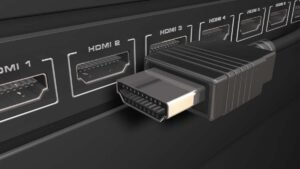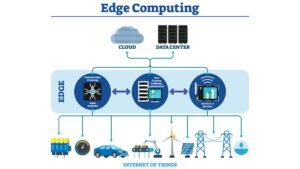In today’s world, competition drives innovations. So, businesses invest huge resources trying to identify gaps within product or service delivery to guide innovations. One way to identify these gaps is to conduct a competitor analysis of rival products and operations.
Competitive analysis allows businesses to identify the strengths and weaknesses of rivals. Plus, it can help identify operational and marketing advantages. Information obtained via this analysis is, therefore, not only useful in product development. In fact, competitive analysis can inform pricing strategies, marketing strategies, advertising campaigns, content creation, etc.
The singular problem is how to obtain data on the competition. Web scraping is the digital ally that businesses need to solve this problem. With the aid of a Good tool, businesses can scrape Google data off their competitor’s websites, ads, etc.
Why is Web Scraping Employed for Competitive Analysis?
Web scraping is the automatic extraction of web content from a site. Using a web-scraping tool, a business can extract relevant data from a website and download it onto a local folder for analysis. This can be useful when carried out on a competing website or business profile.
It is a widely held opinion that competitive analysis (in any form) is a valuable source of business intelligence. In other words, businesses that strive for success constantly monitor the activities of rivals. Furthermore, they look to generate insights from what they observe.
The obsession with competitor performance makes web scraping a useful practice for such businesses. They can remotely scrape data off competitor websites and social media accounts.
The data obtained can then be used to profile product, content, and ad performance. A business with an effective brain trust can learn a lot about optimizing its products, contents, and ads by simply monitoring what the competition is doing.
Why are Search Engines Useful for Competitive Analysis?
Search engines are the gateway to the internet. The internet is vast, spanning millions of websites and seemingly infinite web pages. Search engines do not just show you the door; they offer shortcuts to your destination when you provide certain keywords.
As such, these search engines serve as avenues for browsers and potential customers to find content and products, respectively. Thanks to this functionality, businesses with online presence are constantly vying to rank highly on the result pages for particular keywords.
Similarly, competing businesses can use search engines to monitor the rankings of rival web pages for common keywords or the keywords that they rank well.
Google is the biggest search engine, and YouTube is also a significant player. Due to this, businesses strive the hardest to rank highly on Google searches, making Google search data a potentially important resource. By extension, if search engine results data are an important resource for competitive analysis, Google data is the most important.
Difficulties Associated with Web Scraping Websites and Search Engines
While a web scraper scrapes data off websites, a search engine scraper specializes in doing the same for search engines. Therefore, a Google search engine scraper would help its user scrape Google search result data more efficiently than a regular web scraper. Despite this difference, they share similar difficulties. Some of these are:
- Potential for blocked or blacklisted IPs because of unusual or numerous requests.
- Changes in HTML data and website structure can render the scraping tool ineffective until it is reconfigured.
- Captcha prompts are put in place to sort bots from human users, and honeypot traps are integrated into websites to catch web scrapers.
In addition to the above, search engines (such as Google) also utilize Sophisticated defense systems to make scraping difficult. For instance, to scrape Google data, a web scraper might need to avoid falling prey to a behavioral detection system.
Types of Data Needed for Competitive Analysis
Multiple types of data can be obtained when businesses scrape Google services or other websites. Some of these are:
- Product and service listings on websites: This could give competing businesses an indicator of how their product compares to others in a new market.
- Prices of products and services: For monitoring prices or rival products and making informed decisions on pricing strategy.
- Customer feedback: This could be a useful source of customer sentiments on a particular product and how they could be improved.
- Shopping data: To monitor keywords, prices, reviews, and performance of rival products.
- Search Engine Results Pages: This can help companies monitor the practices of competing businesses that may be helping them rank higher. This should inform content and SEO strategy.
Conclusions
Competitive analysis is an important part of market research for any business looking to launch a new product or enter a new market. So, secondary sources of information on the competition, like online data, can be useful. Businesses that value this data, though, have to be skilled at how to scrape Google services and other public data sources without drawing unnecessary attention. Such data, in combination with primary data, can help any business secure a competitive advantage.




![Read more about the article Windows server Keep Restarting [Fix 2023]](https://wuschools.com/wp-content/uploads/2022/12/Windows-server-Keep-Restarting-2-300x169.jpg)